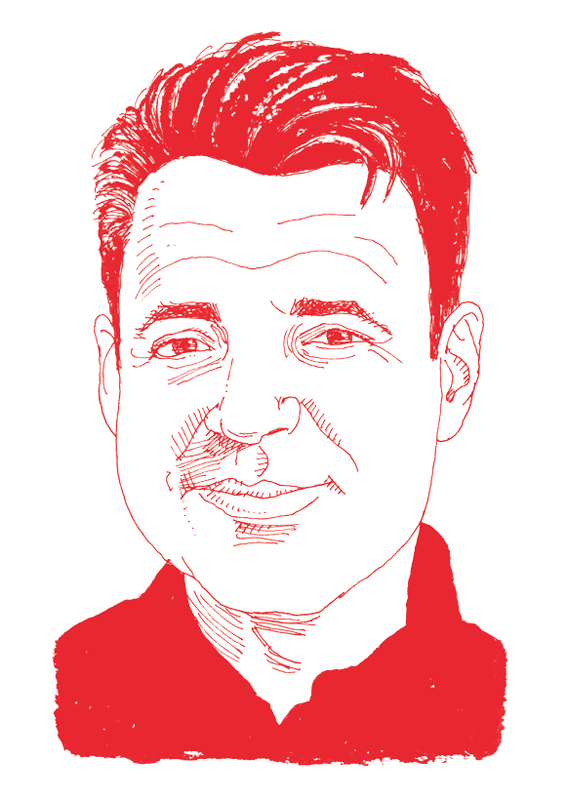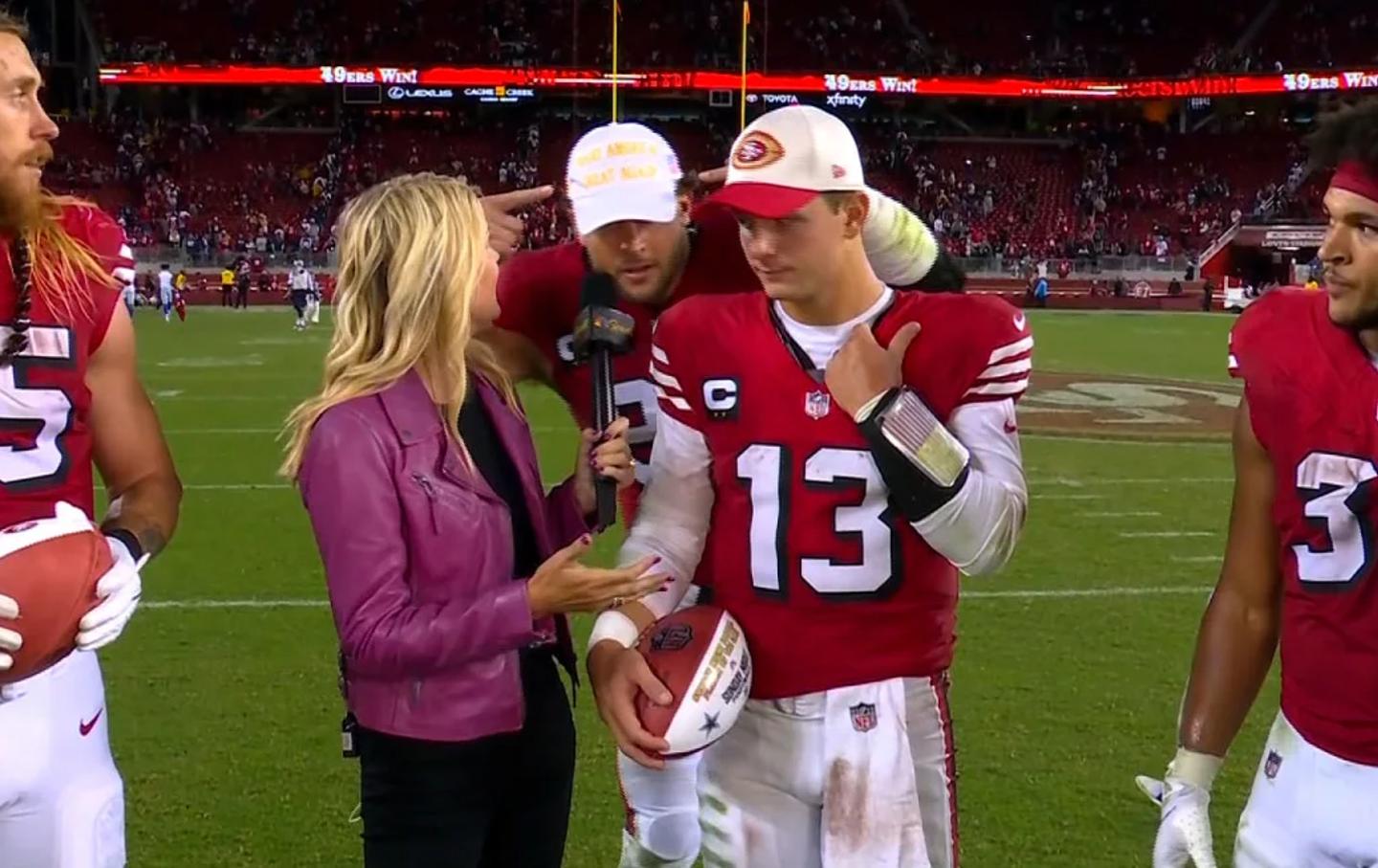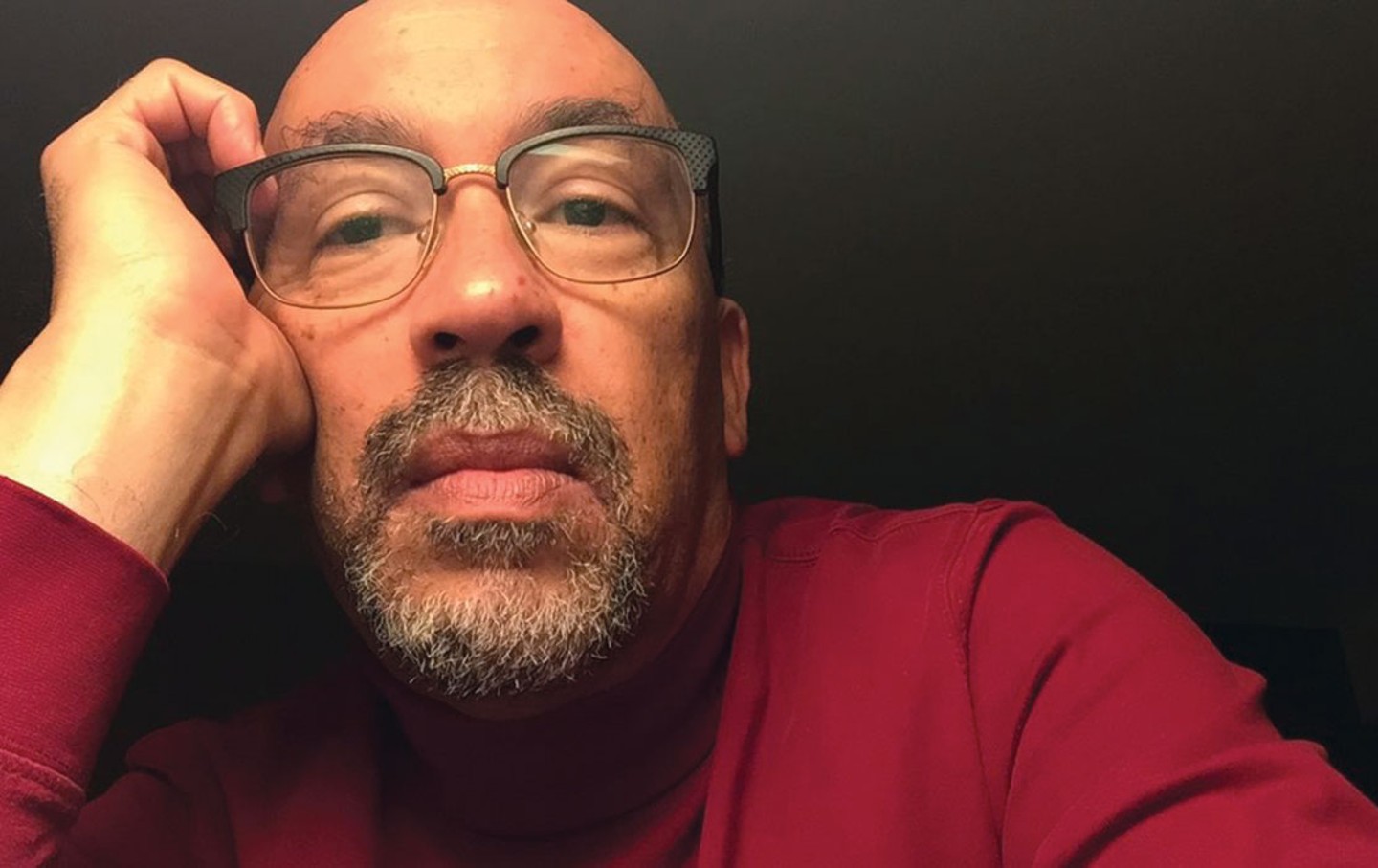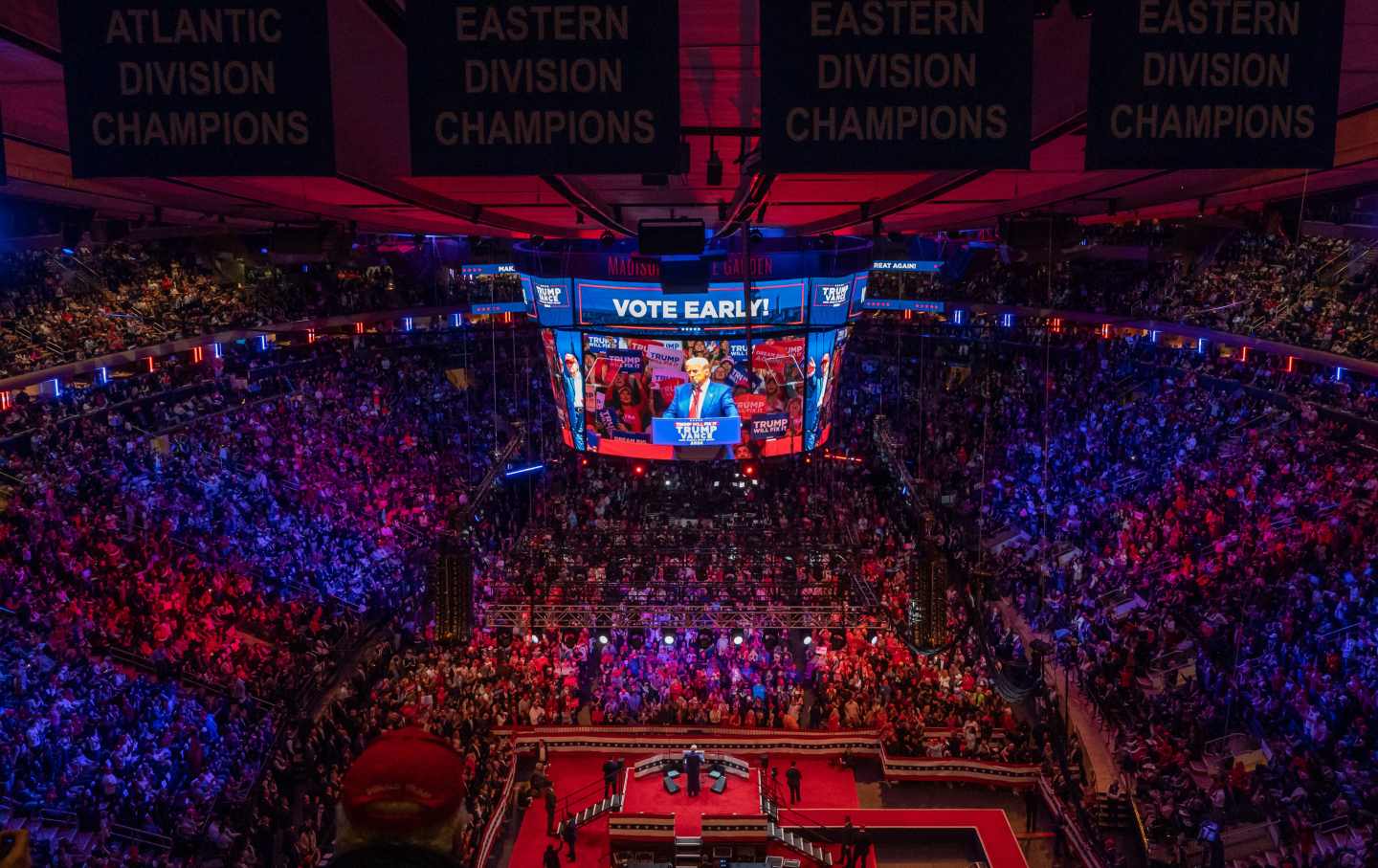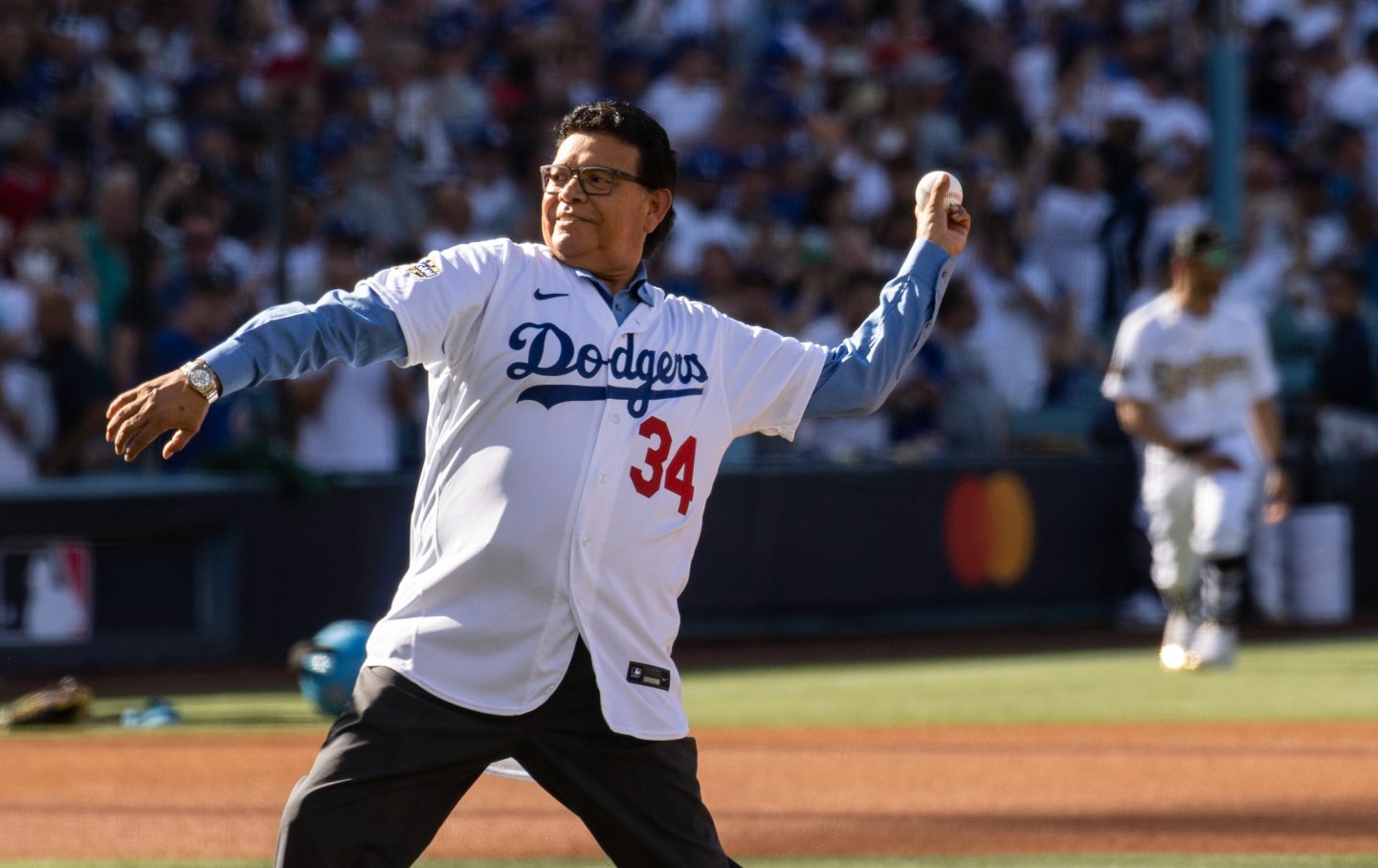Oakland Has 2 New Baseball Heroes—and a Billionaire Owner Ruining Everything
Outfielders Esteury Ruiz and Brent Rooker stood with their fans against a planned move to Las Vegas. They were punished, and the owner is pulling the team from Oakland early.

Esteury Ruiz of the Oakland Athletics wore a Last Dive Bar wristband during a May 2023 game against the Seattle Mariners.
(Stephen Brashear / Getty Images)There are few sports more institutionally conservative than Major League Baseball. Team owners expect their employees to shut up and hit; players are allowed to be quirky—not political. Over the 150 years of the sport, there aren’t many who have earned the right to be called rebels. (See this book if you want a sampling of the daring few.)
That changed in Oakland this past week. Two Oakland A’s players decided to show solidarity with their hometown fans who are outraged by the team’s planned 2028 move to Las Vegas. Outfielders Esteury Ruiz and Brent Rooker wore wrist bands from an organization called Last Dive Bar, which has been organizing protests at A’s games against the move. As an alleged result, Ruiz was sent down to the minor leagues despite a .429 batting average, and Rooker was shown the bench even though he was the A’s lone all-star a year ago. The same A’s organization that banished catcher Bruce Maxwell to the minor leagues when he took a knee during the anthem is once again apparently punishing players for choosing to use their minds. (The Nation contacted the players’ union, the Major League Baseball Players Association, about whether it would be investigating, and it issued a “no comment.”)
The alleged crackdown on dissent now makes even more sense. The team’s owner, John Fisher, a petty authoritarian and Gap clothing heir, announced on Thursday that until the 2028 move to Vegas, he will be moving the team out of the Oakland Coliseum and to West Sacramento where they will play in a minor league ballpark called Sutter Health Park. For their three years in Sacramento, they will be known only as the A’s. No Oakland. No Sacramento. Just the stateless A’s. Sutter Health Park seats 10,000 people, but the numbers can swell as high as 14,000 when accounting for lawn seating. This is where Fisher, who has been gutting the team for years despite inheriting most of his net worth of $3.3 billion, will perch until 2028, when a $1.5 billion monument to Las Vegas greed awaits him in the form of a new stadium. Until that ballpark opens, it’s Sacramento (though we won’t say Sacramento).
This is a disgrace: a Major League all-timer up there with Disco Demolition Night at Comiskey Park and the day in 1976 when the Chicago White Sox all wore shorts as a publicity stunt. Fisher, an aggrieved baby, would rather be a national punch line than spend one more moment in Oakland. Meanwhile the people of Oakland, just a few years after losing the NFL’s Oakland Raiders, are faced with another defection. It’s painful to anyone who cares about baseball history and one of the best fan bases in the sport. This is the team of Rickey Henderson, Rollie Fingers, and Vida Blue. This is the team of Reggie Jackson of the Bash Brothers of Moneyball. To see Fisher humiliate this franchise and the city of Oakland on his way out the door demands a rebuke.
One may imagine that strong words would be coming from Major League Baseball commissioner Rob Manfred. One would be wrong. All Manfred has done was to issue congratulations to the people of Sacramento. Not a word of endearment for Oakland’s baseball history. As I’ve written before, it staggers me how much Manfred apparently hates baseball: its fans, its players, and the best of its traditions. Oakland losing the A’s is an indictment of Manfred, Fisher, and all the billionaires trying to tell us that we should be paying for their stadiums. The people of Oakland stood up to this logic, and now they are being punished. This isn’t about baseball. It’s about capital flight from our cities. It’s about the subjugation of our history. It’s about the 1 percent picking the meat off the bones of our cities.
But Las Vegas residents aren’t patsies. Currently, there is a citizen’s movement being funded by the Nevada Education Association to get the question of whether to fund the stadium on the ballot. They are appearing before a judge on April 9 to see if they can put whether to spend $380 million in public funds for a ballpark up for a vote. The name of the case? Schools Over Stadiums v. Thompson. Let’s go, Schools!

